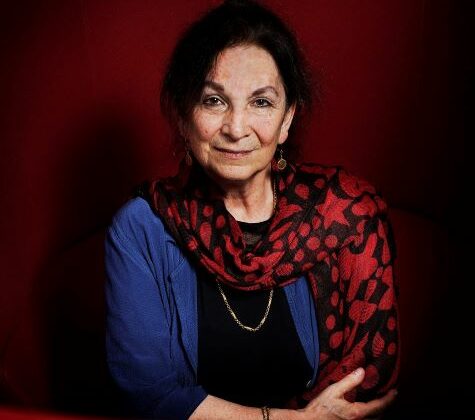Annelies Moors
NIAS Individual Fellow

Project title
The struggle for the future of ethnography
Research question
This project investigates how new formats of research management, on the one hand, and new populations of researchers and their publics, on the other hand, have affected ethnography. The central question this project addresses is how ethnography has become defined as ‘trouble’, the kinds of dilemmas ethnographers face, and how these may affect the future of ethnography.
Project description
When an article I wrote with two colleagues became the subject of a controversy about the influence of Cyberjihadism on academic research, we decided to turn this affaire into fieldwork for our own auto-ethnographic research project. This NIAS proposal uses the insights we have gained to pose broader questions about the struggle for the future of ethnography.
In the course of the last decades ethnography, as an interpretative, reflexive and intersubjective approach to knowledge production, has become more broadly accepted in a variety of disciplines. More recently, however, it has also come increasingly under attack.
Ethnography has been particularly affected by the turn to new public management and audit culture. With its sensitivity to uncertainty and ambiguity and its practice of longer term immersive research, ethnography does not fit well with marketization, quantification, and the quest for certainty and quick answers. The bureaucratization of ethics, the emergence of the transparency movement, and the proliferation of integrity protocols are largely grounded in positivist approaches. Whereas these pose serious problems for ethnographers, the recent emergence of countervailing forces, such as a plea for ‘slow science’, are more promising.
If research management considers ethnographers as ‘too critical’, there is also a long history of internal criticism. This criticism has gained momentum, with the growing presence of ethnographers from the global South and from categories, previously excluded from the academy (be it on the basis of gender, class, race, ethnicity, religion and so on), who argue for the decolonization of ethnography, criticize internal hierarchies, and raise questions about whom ethnographers are accountable to.
Selected publications
De Koning, Martijn, Annelies Moors and Aysha Navest. 2020. ‘On speaking, remaining silent and being heard: Framing research, positionality and publics in the jihadi field’, Jihadi Audiovisuality and its Entanglements: Meanings, Aesthetics, Appropriations, edited by Christoph Günther and Simone Pfeifer. Edinburgh University Press. Pp. 27-50.
Moors, Annelies, 2019, The trouble with transparency: Reconnecting ethics, integrity, epistemology and power. Ethnography 20, 2. https://doi.org/10.1177/1466138119844279
Linked to the publication above: de Koning, M., Meyer, B., Moors, A., & Pels, P. (2019). Guidelines for anthropological research: Data management, ethics and integrity. Ethnography 20, 2. https://doi.org/10.1177/1466138119843312
Moors, Annelies, 2019, ‘No escape: the force of the security frame in academia and beyond’, in Nadia Fadil, Martijn de Koning, and Francesco Ragazzi, eds., Narratives of De/Radicalisation. Critical Approaches from Belgium and the Netherlands. Bloomsbury. Pp. 245-259.
Moors, Annelies, 2017, ‘On autoethnography,’ Ethnography 18, 1: 387-389.
More about myself
I am an anthropologist and professor emerita at the University of Amsterdam. I have studied Arabic at the University of Damascus and has done extensive fieldwork in Palestine, Yemen and the Netherlands. From 2001-2008 I directed the programma on Muslim Cultural Politics as Amsterdam Chair at the International Institute for the Study of Islam in the Modern World (ISIM). Mymost recent large research project was the ERC advanced grant Problematizing “Muslim Marriages”: Ambiguities and Contestations (see http://religionresearch.org/musmar2014/)
I have mainly published on gender, class, nation and religion in such fields as Muslim family law and Islamic marriages, wearing gold, the visual media (postcards of Palestine), migrant domestic labor, Islamic fashion, and wearing face-veils. Currently I am writing up the work on the Muslim Marriages project, and supervising nine PhD students. And now I am working on The struggle for the future of ethnography at NIAS.
You will get a better sense of my life and work if you watch my valedictory lecture: https://webcolleges.uva.nl/Mediasite/Play/cf3a6e3c9c36452c82e271d1a3c63b231d